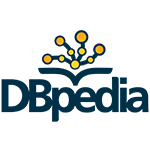
We are happy to announce that we are partnering again with the SEMANTiCS Conference which will host this year’s DBpedia Day on September 9, 2021. The SEMANTiCS is an established knowledge hub which brings together technology professionals, industry experts, and researchers to exchange knowledge regarding new technologies, innovations, and enterprise implementations in the fields of Linked Data and Semantic AI.
Highlights/Sessions
- Keynote presentation by Maria-Esther Vidal (TIB & L3S Research Center) (abstract)
- DBpedia Databus presentation by Sebastian Hellmann (InfAI, DBpedia Association)
- DBpedia member presentation
- DBpedia Ontology session
- NLP & DBpedia session
- Presentation of the Dutch National Knowledge Graph
Quick Facts
- Web URL: https://www.dbpedia.org/events/dbpedia-day-semantics-2021/
- When: September 9, 2021
- Where: Meervaart Theatre, Meer en vaart 300, 1068 LE, Amsterdam AND online
- Registration: To attend the conference on September 9, 2021 you have to book your ticket here.
Registration/Tickets
Attending the DBpedia Day costs 138 € (onsite). You need to buy your ticket on the SEMANTiCS website. Because of the current situation you are able to switch between online (46€) or onsite tickets (138 €) any time.
Sponsors and Acknowledgements
- Institute for Applied Informatics
- SEMANTiCS 2021
- OpenLink Software
- Semantic Web Company
- FH St. Pölten
- TNO
- VU Amsterdam
Organisation
- Enno Meijers, National Library of the Netherlands & Dutch DBpedia
- Julia Holze, InfAI, DBpedia Association
- Milan Dojchinovski, InfAI, DBpedia Association, CTU
- Sebastian Hellmann, InfAI, DBpedia Association
We are looking forward to meeting you in Amsterdam or online!
Julia
on behalf of the DBpedia Association


 We are happy to announce that SEMANTiCS 2019 will host the 14th DBpedia Community Meeting at the last day of the conference on September 12, 2019.
We are happy to announce that SEMANTiCS 2019 will host the 14th DBpedia Community Meeting at the last day of the conference on September 12, 2019.